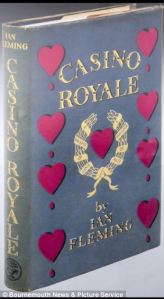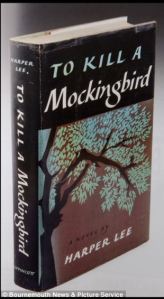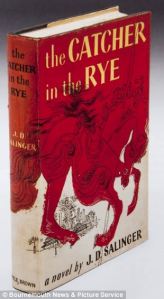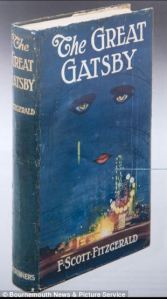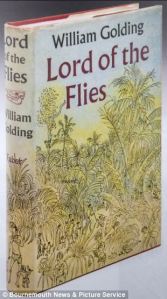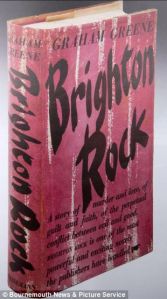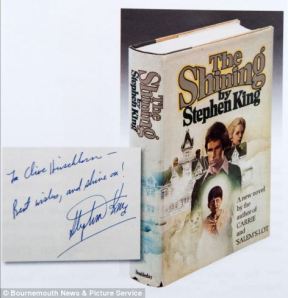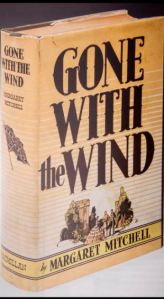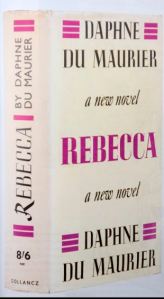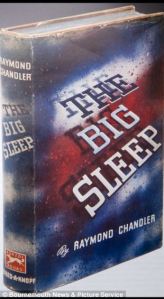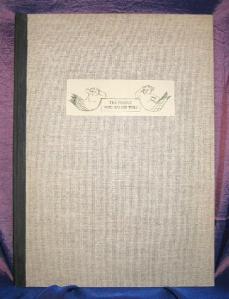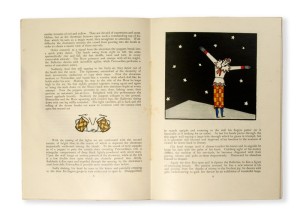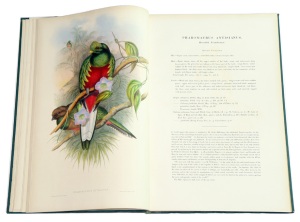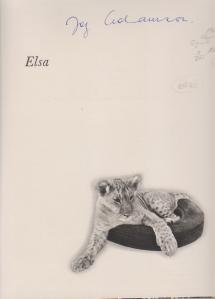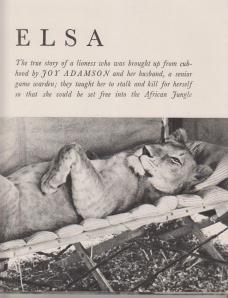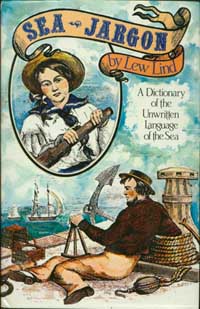500 First edition books = over 1 million at auction
January 9, 2013 § Leave a comment
Whilst searching the internet for book related news I came across this interesting article about a man who collected first edition books for thirty years. He put them up for auction in October last year to fund his retirement. And a great retirement he will have with an estimated profit of over 1 million pounds for the collection. That’s a lot of cruise ship vacations!
Going, going, Gone With The Wind! Pensioner who
collected 500 first edition books set to land £1m at auction
- Former theatre critic Clive Hirschhorn, 72, has amassed one of the world’s finest libraries of first edition books
- Collection includes Stephen King’s The Shining (with a note from the author), Ian Fleming’s first James Bond novel Casino Royale and Margaret Mitchell’s Gone With The Wind
- Rare copy of F Scott Fitzgerald’s The Great Gatsby is set to fetch £75,000
- ‘I never read any of the first editions. If I wanted to, I would go out and buy a paperback version,’ says collector
PUBLISHED: 13:23 GMT, 17 October 2012 | UPDATED: 18:43 GMT, 17 October 2012
A pensioner who did not touch his precious library of rare books for 30 years is to be rewarded for his patience when it sells for an expected £1million at auctioneers Bloomsbury of London later this month.
Clive Hirschhorn, 72, has amassed one of the world’s finest collections of first edition books, which reads more like a Who’s Who of 20th century fiction.
The retired theatre critic, from Midhurst, Sussex, knew the value of the books relied upon the condition of the original dust-jackets and so has hardly removed them from the shelves over the years.
Casino Royale: Set to fetch Mr Hirschhorn £10,000-£15,000 at auction at the end of the month
Rare edition: Harper Lee’s To Kill A Mocking Bird is expected to sell for £1,000-£1,500
Nice catch: Catcher in the Rye should be worth £4,000-£6,000
If he wanted to read one, he bought a paper back version as the slightest blemish or tear on the jackets would have knocked hundreds of pounds off their price.
Mr Hirschhorn has now decided to part with his collection of about 500 books that he bought from second-hand shops and private dealers around the world.
A first edition copy of the literary classic The Great Gatsby he paid £1,500 for in 1987 is being tipped to sell for a staggering £75,000.
One of the earliest versions of Ian Fleming’s first James Bond novel Casino Royale that still has a first-issue dust-jacket is valued at £15,000.
Great value: F Scott Fitzgerald’s classic The Great Gatsby may fetch £75,000
Golden: William Golding’s Lord of The Flies is valued at between £8,000-£12,000
Classic: Brighton Rock, by Graham Greene, could be worth as much as £60,000
An excellent copy of Graham Greene’s book Brighton Rock that has a ‘near-fine’ jacket has a pre-sale estimate of £60,000. First editions of this book are extremely rare as a warehouse fire destroyed most of them in 1938.
Dashiell Hammett’s The Maltese Falcon is set to sell for £50,000 while a first edition of William Golding’s Lord Of The Flies is valued at £12,000.
King’s speech: Author Stephen King has signed the book for Mr Hirschhorn, saying ‘Best wishes, and shine on!’. The book may fetch £1,200-£1,800
The world of crime is represented by a £3,000 early copy of Agatha Christie’s 1932 work Peril At End House while four volumes of AA Milne’s The Christopher Robin Books are expected to fetch £10,000.
Mr Hirschhorn managed to get a number of his books signed by the authors, with Stephen King writing ‘shine on’ in the front of a first edition copy of The Shining.
Harper Lee’s classic To Kill A Mocking Bird, John le Carre’s Call For The Dead and Margaret Mitchell’s Gone With The Wind are tipped to sell for a total of £27,000.
Mr Hirschhorn said he stopped collecting about three years ago and is now selling the books to help fund his retirement. He said: ‘I started the collection in 1984 after I read a newspaper article about first edition books while on a bus.
‘After that it was like a virus or infection that was in my blood and I couldn’t pass a second-hand bookshop without going in to look for first editions.
‘I always had with me a useful price guide telling me how much each book was worth and I would always pay less than that price.
‘But with first editions, the condition of the dust-jacket is everything.
‘I never read any of the first editions, if I wanted to I would go out and buy a paperback version. Any mark or tear on the jacket would take hundreds or thousands off the value.
‘I kept them on shelves in my bedroom well out of the sunlight. As I used to say, they were for show not for blow.
‘It is quite extraordinary just how much in value some of them have gone up by.
Going, going, gone: Margaret Mitchell’s classic Gone with the Wind is worth £6,000-£8,000
Rare: Rebecca by Daphne du Maurier has been valued at between £3,000-£4,000
The big pay day: Raymond Chandler’s American classic The Big Sleep should fetch £8,000
‘I paid about £1,500 for the Great Gatsby in 1987 which wasn’t an inconsiderable sum at all but it could sell for about £100,000 now.
‘It is possibly one of the most iconic of all American novels and was turned into a film three times.’
Mr Hirschhorn said it was now costing more and more money to insure his library and he hopes to use some of the proceeds to buy a new flat to rent out.
One of his smartest investments was paying about £120 pounds for To Kill A Mocking Bird which is now worth 100 times that amount.
Rupert Powell, the deputy chairman of auctioneers Bloomsbury of London, said: ‘This is one of the most important private collections of modern first editions to come onto the market the last ten years.
‘A particularly remarkable aspect is the near-perfect condition of the original dust-jackets, and this will appeal to all true collectors.’
Other rare first editions in the sale include Ernest Hemingway’s A Farewell To Arms, Daphne du Maurier’s Rebecca and John Steinbeck’s The Grapes Of Wrath and Bram Stoker’s Dracula.
References
Man Booker Prize Winner: Hilary Mantel
October 17, 2012 § Leave a comment
Originating in 1969, The Man Booker Prize for Fiction is the literary award, granted to the best, original, full-length novel written in English. The Booker Prize is a reputable literary award granted to authors in the British Commonwealth and Ireland and brings recognition and reward, through promotion and prize money for both book and author.
This years winner is Hilary Mantel, who along with two other authors in the award’s history, has gained the prestigious award for the second time. Here is an article about Hilary on the Man Booker Prize website:
Hilary Mantel wins 2012 Man Booker Prize
16 October 2012
The whittling has finished. The judges of this year’s Man Booker Prize started with a daunting 145 novels and have winnowed, sifted, culled, and in some cases hurled, until there was only one left: Hilary Mantel‘s Bring up the Bodies.
Hers is a story unique in Man Booker history. She becomes only the third author, after Peter Carey and J.M. Coetzee, to win the prize twice, which puts her in the empyrean. But she is also the first to win with a sequel (Wolf Hall won in 2009) and the first to win with such a brief interlude between books. Her resuscitation of Thomas Crowell – and with him the historical novel – is one of the great achievements of modern literature. There is the last volume of her trilogy still to come so her Man Booker tale may yet have a further chapter.
The writing will have to wait a bit though. She may have won before but the torrent of media interest will still knock her back as if she’s been hit by a wave. In 2009 she confessed to feeling as though she were “flying through the air”, well, she’s soaring again. When she lands she won’t have time to think and she will talk into microphones until her throat is sore. It comes with the territory: everyone wants a bit of the Man Booker winner.
It has been a long and uniquely intense journey not just for her but for everyone associated with the prize. For the judges it has meant nine months of work, worry and pleasure. Their choices have been scrutinised and criticised and their thoughts and penchants imagined. They will have read the shortlisted books at least three times. They will await the public’s verdict on their choice with sang-froid mixed with curiosity. They needn’t be worried, Bring Up the Bodies has had near universal praise from critics and reading public alike.
The shortlisted authors meanwhile have felt the hot brightness of the media spotlight on them since July when the long-list was first announced. They can breathe out now. For Hilary Mantel all those middle-of-the-night moments when she had to tell herself not to think of what it would be like to win again, not to jinx herself, can stop.
Indeed, spare a thought for the shortlisted authors; they will have had a day unlike any other they have known. How do you take your mind off the fact that in a matter of hours you might be the winner of arguably the world’s most high-profile literary prize? Of course it is an honour and validation to be shortlisted but they will have known that at 11.30 this morning the judges closed the door of a room somewhere in London – possibly near to where they themselves were standing/shopping/chomping their nails – and settled down to decide their future. They will have wondered what that group literary holy men and women, like the conclave of cardinals in the Sistine Chapel choosing a new Pope, were talking about and wondered whether the puff of white smoke that finally emerged was for them. They may be writers but they’re only human.
The nerves will have continued all through the prize dinner, even a phalanx of loved ones, publisher and agent can’t keep them away. They chatted amicably, a drink – but perhaps just the one – to steady the beating heart. I doubt they tasted their food. Who would have wanted to be them as Sir Peter Stothard took to the rostrum and opened his mouth to enunciate the first syllable of the winner’s name? She may qualify as an old hand but Hilary Mantel confessed that her nerves this time round were infinitely worse than in 2009.
This is not the end of the process, however. For Hilary Mantel it is the moment of coronation before she confronts the wider horizons that have suddenly opened up before her. For the other shortlisted authors who came so agonisingly close they have the knowledge that every publisher in the land will bite their hand off for the chance to publish their next book and that, whatever they write, they will have a wide and eager audience. Their names are now known to readers who may have had no idea of them only a few months ago.
Perhaps the real object of envy is not the winner – she thoroughly deserves her triumph – but the readers who have yet to open Bring Up the Bodies. They have just won a prize too.
References
http://www.themanbookerprize.com/news/hilary-mantel-wins-2012-man-booker-prize
Re-Reading and the Suck fairy
September 11, 2012 § 2 Comments
Re-Reading and the Suck fairy from Tor.com.
Having received this from Sue Nicolson – Palmerston North New Zealand I could not resist passing it on.
It’s worth a click down on the “panel on rereading” as well
Here’s a take on a common aspect of rereading. Of course where she
talks about what happens with children’s books she doesn’t mention that
the suck fairy sometimes deputises to publishers who abridge….
ABC’s top 20 Australian books plus BBC’s top 200 books
October 8, 2011 § Leave a comment
Top Australian books as polled by ABC. BBC’s top 200 books. The poll came from three quarters of a million votes.
“Cloudstreet” – Tim Winton
“A Fortunate Life” – AB Facey
“Dirt Music” – Tim Winton
“My Brother Jack” – George Johnston
“The Magic Pudding” – Norman Lindsay
“The Tree of Man” – Patrick White
“Seven Little Australians” – Ethel Turner
“The Fortunes of Richard Mahony” – Henry Handel Richardson
“Tomorrow When the War Began” – John Marsden
“My Place” – Sally Morgan
“Power Without Glory” – Frank Hardy
“Power of One” – Bryce Courtenay
“Oscar and Lucinda” – Peter Carey
“The Harp in the South” – Ruth Park
“Snugglepot and Cuddlepie” – May Gibbs
“Eucalyptus” – Murray Bail
“The Idea of Perfection” – Kate Grenville
“The Ancient Future” – Traci Harding
“I Can Jump Puddles” – Alan Marshall
“Voss” – Patrick White
|
- Three Men in a Boat by Jerome K. Jerome
- Small Gods by Terry Pratchett
- The Beach by Alex Garland
- Dracula by Bram Stoker
- Point Blanc by Anthony Horowitz
- The Pickwick Papers by Charles Dickens
- Stormbreaker by Anthony Horowitz
- The Wasp Factory by Iain Banks
- The Day of the Jackal by Frederick Forsyth
- The Illustrated Mum by Jacqueline Wilson
- Jude the Obscure by Thomas Hardy
- The Secret Diary of Adrian Mole, Aged 13¾ by Sue Townsend
- The Cruel Sea by Nicholas Monsarrat
- Les Misérables by Victor Hugo
- The Mayor of Casterbridge by Thomas Hardy
- The Dare Game by Jacqueline Wilson
- Bad Girls by Jacqueline Wilson
- The Picture of Dorian Gray by Oscar Wilde
- Shōgun by James Clavell
- The Day of the Triffids by John Wyndham
- Lola Rose by Jacqueline Wilson
- Vanity Fair by William Makepeace Thackeray
- The Forsyte Saga by John Galsworthy
- House of Leaves by Mark Z. Danielewski
- The Poisonwood Bible by Barbara Kingsolver
- Reaper Man by Terry Pratchett
- Angus, Thongs and Full-Frontal Snogging by Louise Rennison
- The Hound of the Baskervilles by Arthur Conan Doyle
- Possession: A Romance by A. S. Byatt
- The Master and Margarita by Mikhail Bulgakov
- The Handmaid’s Tale by Margaret Atwood
- Danny, the Champion of the World by Roald Dahl
- East of Eden by John Steinbeck
- George’s Marvellous Medicine by Roald Dahl
- Wyrd Sisters by Terry Pratchett
- The Color Purple by Alice Walker
- Hogfather by Terry Pratchett
- The Thirty-nine Steps by John Buchan
- Girls in Tears by Jacqueline Wilson
- Sleepovers by Jacqueline Wilson
- All Quiet on the Western Front by Erich Maria Remarque
- Behind the Scenes at the Museum by Kate Atkinson
- High Fidelity by Nick Hornby
- It by Stephen King
- James and the Giant Peach by Roald Dahl
- The Green Mile by Stephen King
- Papillon by Henri Charrière
- Men at Arms by Terry Pratchett
- Master and Commander by Patrick O’Brian
- Skeleton Key by Anthony Horowitz
- Soul Music by Terry Pratchett
- Thief of Time by Terry Pratchett
- The Fifth Elephant by Terry Pratchett
- Atonement by Ian McEwan
- Secrets by Jacqueline Wilson
- The Silver Sword by Ian Serraillier
- One Flew Over the Cuckoo’s Nest by Ken Kesey
- Heart of Darkness by Joseph Conrad
- Kim by Rudyard Kipling
- Cross Stitch by Diana Gabaldon
- Moby-Dick by Herman Melville
- River God by Wilbur Smith
- Sunset Song by Lewis Grassic Gibbon
- The Shipping News by E. Annie Proulx
- The World According to Garp by John Irving
- Lorna Doone by R. D. Blackmore
- Girls Out Late by Jacqueline Wilson
- The Far Pavilions by M. M. Kaye
- The Witches by Roald Dahl
- Charlotte’s Web by E. B. White
- Frankenstein by Mary Shelley
- They Used to Play on Grass by Terry Venables and Gordon Williams
- The Old Man and the Sea by Ernest Hemingway
- The Name of the Rose by Umberto Eco
- Sophie’s World by Jostein Gaarder
- Dustbin Baby by Jacqueline Wilson
- Fantastic Mr. Fox by Roald Dahl
- Lolita by Vladimir Nabokov
- Jonathan Livingston Seagull by Richard Bach
- The Little Prince by Antoine de Saint-Exupéry
- The Suitcase Kid by Jacqueline Wilson
- Oliver Twist by Charles Dickens
- The Power of One by Bryce Courtenay
- Silas Marner by George Eliot
- American Psycho by Bret Easton Ellis
- Diary of a Nobody by George and Weedon Grossmith
- Trainspotting by Irvine Welsh
- Goosebumps by R. L. Stine
- Heidi by Johanna Spyri
- Sons and Lovers by D. H. Lawrence
- The Unbearable Lightness of Being by Milan Kundera
- Man and Boy by Tony Parsons
- The Truth by Terry Pratchett
- The War of the Worlds by H. G. Wells
- The Horse Whisperer by Nicholas Evans
- A Fine Balance by Rohinton Mistry
- Witches Abroad by Terry Pratchett
- The Once and Future King by T. H. White
- The Very Hungry Caterpillar by Eric Carle
- Flowers in the Attic by V. C. Andrews
LiBrisFair: Brisbane Antiquarian Book Fair
September 8, 2011 § Leave a comment
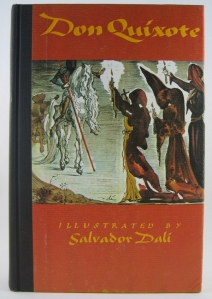
The First Part of the Life and Achievements of the Renowned Don Quixote De La Mancha. Illustrated by Salvador Dali. $80.00
References
http://www.ilab.org/eng/news/991-librisfair.html
http://events.weekendnotes.com/librisfair-at-the-state-library/
I must read…
March 23, 2011 § Leave a comment
This is a great list of “must-reads” by blogger Benji from White Like Milk: follow the link here: “Children should read 50 books a year” says Gove...
1) Where The Wild Things Are by Maurice Sendak.
2) On The Road by Jack Kerouac.
3) The Catcher In The Rye by J. D. Salinger
4) The Chronicles of Narnia by CS Lewis
5) Little House on the Prairie by Laura Ingalls Wilder
7) Brave New World by Aldous Huxley
![]() Alice’s Adventures in Wonderland by Lewis Carrol
Alice’s Adventures in Wonderland by Lewis Carrol
9) Anything written by Roald Dahl. Just grab one of the books, they’re all marvellous.
10) Lord of the Flies by William Golding
11) Oliver Twist by Charles Dickens.
12) Pride and Prejudice by Jane Austen
13) The Day of the Triffids by John Wyndham
14) The Jungle Book by Rudyard Kipling
15) The Railway Children by E Nesbit.
16) Flowers for Algernon by Daniel Keyes
17) The Sterkarm Handshake/The Sterkarm Kiss by Susan Price
18) Charlotte’s Web by EB White
19) Tom’s Midnight Garden byPhilippa Pearce
20) The Sheep-Pig by Dick King-Smith
21) The Iron Man by Ted Hughes
22) Finn Family Moomintroll by Tove Jansson
23) To Kill a Mockingbird by Harper Lee
24) Watership Down by Richard Adams
25) Nation by Terry Pratchett
26) Partners in Crime by Agatha Christie
27) The knife of never letting go – Patrick Ness
28) Ways to Live Forever by Sally Nicholls
29) A Begonia for Miss Applebaum by Paul Zindle. (I cried my heart out!)
30) Grinny by Nicholas Fisk
31) Leviathan by Schott Westerfield
32) Z for Zachariah by Robert C. O’Brien
33) Plague 99, After the Plague and Watchers at the Shrine by Jean Ure
34) Green Eggs and Ham by Dr. Seuss
35) The Mysteries of Harris Burdick by Chris Van Allsburg
36) Don’t Let the Pigeon Drive the Bus by Mo Willlems
37) The Very Hungry Caterpillar by Eric Carle
38) The Hobbit by J.R.R. Tolkien
39) Struwwelpeter by Heinrich Hoffman
40) Underwater Adventure by Willard Price
41) The Go-Between by LP Hartley
42) Coraline, by Neil Gaiman
43) The Water Babies by Charles Kinglsey
44) The Wave by Morton Rhue
45) A Wizard of Earthsea by Ursula K LeGuin
46) His Dark Materials Box Set by Philip Pullman
47) The Bad Beginning by Lemony Snicket
48) The Spiderwick Chronicles by Holly Black and Tony DiTerlizzi
49) Nicholas Dane by Melvin Burgess
50) Noughts and Crosses by Malorie Blackman
Related Articles
- Children ‘should read 50 books a year’, says Gove (telegraph.co.uk)
Elsa: The Story Of A Lioness
December 1, 2010 § Leave a comment
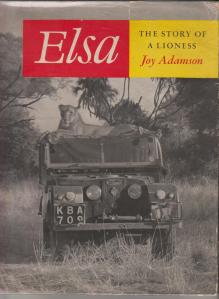
Perhaps you have seen the 1966 feature film Born Free. If so you would know of Elsa, the lioness raised by Joy and George Adamson and released into the wild in Kenya. Or perhaps you’re familiar with another famous Lion. A Lion Called Christian which became an overnight sensation when old footage of Christian was posted on YouTube.
Elsa, The Story Of A Lioness contains the much sort after photography from Joy Adamson’s book Born Free. Born Free is the first of a trilogy of books on Elsa’s life and release into the wild (Born Free was followed by Living Free and Forever Free respectively). Our particular copy of this book at Novel Lines book shop is a 1962 reprint and has been signed by the author Joy Adamson.
It is a special book and the bond between Elsa and Joy is beautifully captured with the black and white photos covering each page.
[Available through Novel Lines eBookshop; $55.00AUS, Hardcover, b/w plates, 4to, cloth, in like dust jacket and now protected]
The Finkler Question?
October 13, 2010 § Leave a comment
 The Finkler Question written by Howard Jacobson is this years winner of the Man Booker Prize 2010. This is the first comedic novel to win the Man Booker Prize award since Kingsley Amis’ book, The Old Devils in 1986. Keeping his cunning comedy at the forefront, Jacobson accepted the award jokingly with,
The Finkler Question written by Howard Jacobson is this years winner of the Man Booker Prize 2010. This is the first comedic novel to win the Man Booker Prize award since Kingsley Amis’ book, The Old Devils in 1986. Keeping his cunning comedy at the forefront, Jacobson accepted the award jokingly with,
“I am speechless… fortunately I prepared one earlier. It’s dated 1983, that’s how long the wait’s been.”
The wait has ended for Howard Jacobson at the age of 68, making him the oldest winner of the Man Booker since William Golding in 1980. Jacobson, never one to shy away from examining himself as an Anglo-Jew; calls himself “the Jewish Jane Austen”. Sir Alexander goes one better than this suggesting,
“It would be a bit over-the-top to say it’s Shakespearean, but he certainly knows something that Shakespeare knew – that the tragic and the funny are intimately linked.”
Sir Andrew may be on the money with this parallel as Howard Jacobson describes his book The Finkler question as ultimately being about sorrow and loss but, “I wanted to make the reader laugh and weep at the same moment.” Jacobson said. This is Jacobson’s 11th novel.
What do you think? Have you read, The Finkler Question or any other works by Howard Jacobson? If so let us know your own personal review in the comment box below. (Please keep in mind will not publish anything indecent or derogatory, although constructive criticism is always welcome!)
For further reading click here for a reputable link to a bio of Howard Jacobson with synopsis of his books including critiques.
Man Booker Prize 2010
October 6, 2010 § Leave a comment
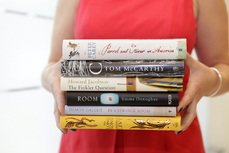 Originating in 1969, The Man Booker Prize for Fiction is the literary award, granted to the best, original, full-length novel written in English. The Booker Prize is a reputable literary award granted to authors in the British Commonwealth and Ireland and brings recognition and reward, through promotion and prize money for both book and author.
Originating in 1969, The Man Booker Prize for Fiction is the literary award, granted to the best, original, full-length novel written in English. The Booker Prize is a reputable literary award granted to authors in the British Commonwealth and Ireland and brings recognition and reward, through promotion and prize money for both book and author.
On the 7th of September 2010 judges narrowed down the long list of thirteen to these six authors; Peter Carey, Emma Donoghue, Damon Galgut, Howard Jacobson, Andrea Levy and Tom McCarthy. for the Man Booker Prize for Fiction. This year the winner will be announced on the 12th of October (2010)and announced and broadcast on BBC News across television, radio and online.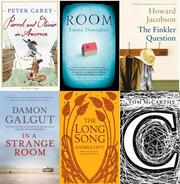
The six books, selected from the Man Booker Prize 2010 are:
-
Peter Carey Parrot and Olivier in America (Faber and Faber)
-
Emma Donoghue Room (Picador – Pan Macmillan)
-
Damon Galgut In a Strange Room (Atlantic Books – Grove Atlantic)
-
Howard Jacobson The Finkler Question (Bloomsbury)
-
Andrea Levy The Long Song (Headline Review –
Headline Publishing Group) -
Tom McCarthy C (Jonathan Cape – Random House)
[The following text has been copied from the Man Booker Website]
Australian author Peter Carey is one of only two authors to have won the prize twice, in 1988 for Oscar and Lucinda and in 2001 for True History of the Kelly Gang. Should he win this year, he would become the only author to have won three times. He was also shortlisted in 1985 for Illywhacker. South African author Damon Galgut has previously been shortlisted for his book The Good Doctor in 2003 and Howard Jacobson has been longlisted twice before for his novels Kalooki Nights in 2006 and Who’s Sorry Now? in 2002. Irish author Emma Donoghue is, at 40, the youngest author on the shortlist.
The winner will receive a cheque for £50,000 and worldwide recognition. Last year’s winning novel, Wolf Hall by Hilary Mantel, has now sold over half a million copies in the UK alone. Each of the six shortlisted authors, including the winner, receives £2,500 and a designer bound edition of their shortlisted book.
Chaired by Andrew Motion, former Poet Laureate, the 2010 judges are Rosie Blau, Literary Editor of the Financial Times; Deborah Bull, formerly a dancer, now Creative Director of the Royal Opera House as well as a writer and broadcaster; Tom Sutcliffe, journalist, broadcaster and author and Frances Wilson, biographer and critic.
Last month the prize announced exciting new digital plans for 2010. The Man Booker Prize App is now free to download from the App Store to an Apple iPhone or iPod Touch and is the UK’s first app for a literary prize. The prize has also partnered with T-Mobile via the digital book retailer GoSpoken. T-Mobile users can access content on their mobile phones and GoSpoken has provided free audio extracts from all the 13 longlisted titles which can be downloaded to subscribers’ mobiles.
Sea Jargon
September 22, 2010 § Leave a comment
Sea Jargon: A Dictionary of the Unwritten Language of the Sea
Do not enter the seven seas without this book! If a sailor walks past you and says, “Oh dear, *Do talk”, you might be in trouble. If ‘Fleet Week’ enters your port side town and a handsome sailor offered you some *Giggle water or *Glitter, would you accept? Have you ever played *Strongback? If someone suggested you should start *Sucking the monkey, what would you do? And who is this old *Flamer they do not like to speak of?
Fortunately Lew Lind has collated this wonderful little book full of sea jargon and unwritten language of the sea. A hilarious flick through, excellent resource and interesting find. So for all you sea men and women out there, wordsmiths and lovers of Sailor Jerry tattoos; stay off the *Stagger juice and make sure you don’t embarrass yourself in front of those sailors!
*Do Talk N. Smelly feet or any objectionable smell close to where a sailor sleeps.
Flamer N. & M.S. An old sailor’s name for the Devil. Superstition forbade them from using the actual word.
Giggle water N. Beer or any light alcoholic drink.
Glitter N. Marmalade jam
Strongback N. A form of leapfrog played by sailors in the sailing navy. It was played by two teams and had a range of variations.
Sucking the monkey N. & M.S. The smuggling into a ship coconuts filled with alcohol. The contents were sucked out through the nut’s eye.
Stagger Juice N. Rum
(Please note: This book has now been sold)

